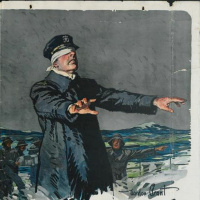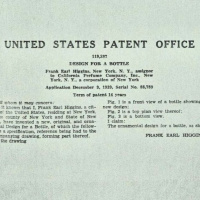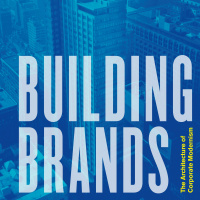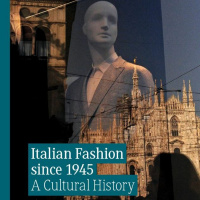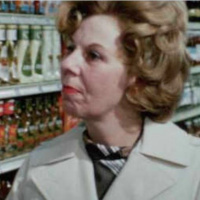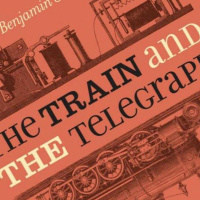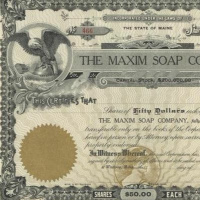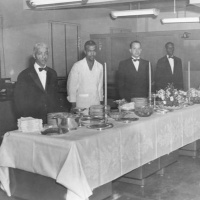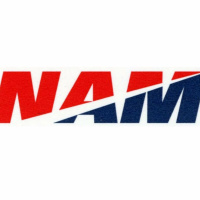Stories From The Stacks
- Author: Vários
- Narrator: Vários
- Publisher: Podcast
- Duration: 84:04:07
- More information
Informações:
Synopsis
Podcast by Hagley Museum and Library
Episodes
-
A Crisis of Identity: Sectionalism & The U.S. Navy Officer Corps, 1815-1861 with Roger Bailey
09/08/2021 Duration: 32minHagley Center program officer Gregory Hargreaves interviews Roger Bailey about his research into how naval officers’ regional identities and beliefs about race, slavery, & territorial expansion affected their command decisions. In support of his project, Bailey, a PhD candidate in history at the University of Maryland, received a Henry Belin du Pont dissertation fellowship from the Center for the History of Business, Technology, & Society. During the early nineteenth century, naval officers acted as the cutting edge of U.S. foreign policy, and while far from Washington often made decisions impacting geopolitics with only their own values and training to guide them. Whereas the regional and cultural background naval officers brought with them into service profoundly shaped their attitudes and choices, the unity provided by professional service to an ambitious nation state counterbalanced the divisions of sectional identity. At least until the didn’t. For more Hagley History Hangouts, and to learn more
-
Patents Over Planning: Industrial Capital & Postwar Innovation Policy with Dan Traficonte
26/07/2021 Duration: 25minHagley Center program officer Gregory Hargreaves interviews Dan Traficonte about his research into federal programs for technology development and their relationship with private industrial interests. In support of his project, Traficonte, a PhD candidate in urban studies & planning at the Massachusetts Institute of Technology, received an exploratory research grant from the Center for the History of Business, Technology, & Society. During the twentieth century, the United States federal government emerged as a global leader in the research and development of advanced technologies. Should the public retain patent rights to the innovations made with public money? Debate over this question roiled the business and industrial community, as 1930s-era kneejerk antipathy to state involvement gave way to eager cooperation with the state in the postwar period, before lapsing once more into antipathy from the 1980s. Meanwhile, private contractors have made fortunes by assuming proprietorship of technologies develop
-
Building Brands: Corporations and Modern Architecture with Grace Ong Yan
12/07/2021 Duration: 38minHagley oral historian Ben Spohn interviews Grace Ong Yan about her recent book, Building Brands: Corporations and Modern Architecture. In her book, Ong Yan explores the development of corporate Modernism through architectural branding. She does this by examining the design and construction of four corporate headquarters: the PSFS Building by George Howe and William Lescaze, the Johnson Wax Administration Building by Frank Lloyd Wright, Lever House by Skidmore, Owings & Merrill and the Röhm & Haas Building by Pietro Belluschi. Ong Yan draws on company archives to detail the relationships between company leaders and architects to communicate their company’s identity and messaging to the general public through the medium of architecture. Grace Ong Yan, Ph.D. is an author, architectural historian, educator, and designer. She is currently Assistant Professor in Interior Design & Interior Architecture at Thomas Jefferson University in Philadelphia. Ong Yan Co-edited Architect: In the Words of the Pritzker Prize
-
Digital Archaeology: Rediscovering Early Video Games with Kevin Bunch
28/06/2021 Duration: 31minGregory Hargreaves interviews Kevin Bunch about his research into the early history of video games, and his innovative use of Hagley materials to recreate forgotten games. In support of his project, Bunch, a writer & communications specialist at the International Joint Commission, received support from the Center for the History of Business, Technology, & Society. What makes a video game system commercially successful, and is it possible to resurrect failed and forgotten video games? The RCA collections at the Hagley Library hold the answer to these questions and many more, and the work of Kevin Bunch bring them to light. Combining archival research, oral history, data retrieval, and game emulation, Bunch brings forgotten aspects of twentieth-century computer and video game history to life for a new generation. For more Hagley History Hangouts, and to learn more about the Center for the History of Business, Technology, & Society, visit us online at hagley.org.
-
Screentime: An Interactive Exhibition with Deirdre Evans-Pritchard
14/06/2021 Duration: 22minGregory Hargreaves interviews Dr. Deirdre Evans-Pritchard about her media literacy project “Screentime: An Interactive Exhibition.” In support of her project, Evans-Pritchard, an art historian & film studies scholar at the University of Maryland, Global and Executive Director of the DC Independent Film Festival, received a Henry Belin du Pont Research Grant from the Center for the History of Business, Technology, & Society. Are screens neutral carriers of information, or do they reshape messages and reshape society, too? In “Screentime,” Evans-Pritchard considers the contrasting values assigned to television by businessman David Sarnoff, famous for running RCA & NBC, and for evangelizing television, and media critic Marshall McLuhan, who insisted that the medium was the message. This twentieth-century debate rings ominously in the ears of early-twenty first-century Americans embroiled in their own controversies over the role media play in ordering, and disordering, society. Research in the Hagley collecti
-
Italian Fashion Since 1945: A Cultural History with Emanuela Scarpellini
31/05/2021 Duration: 59minIn the course of the twentieth century, Italy succeeded in establishing itself as one of the world's preeminent fashion capitals, despite the centuries-old predominance of Paris and London. This book traces the story of how this came to be, guiding readers through the major cultural and economic revolutions of twentieth-century Italy and how they shaped the consumption practices and material lives of everyday Italians. In the interview, Emanuela Scarpellini explores the economic and cultural changes that made it possible for Italian fashion to rise to world prominence in the 1960s and 1970s. She also uncovers the important role played by the DuPont Company in this process, using documents from the Hagley archives to show the company encouraged and promoted the use of synthetic fibers in clothes created by Italian designers. Emanuela Scarpellini is Professor of Modern History at the University of Milan, Italy. She is the author of several books, including Material Nation: A Consumer's History of Modern Ital
-
Corner Office: Masculinity & the American Business Executive with Karen Mahar
17/05/2021 Duration: 19minProgram officer Gregory Hargreaves interviews Dr. Karen Mahar about her book project “Corner Office: Masculinity & the American Business Executive.” In support of her project, Mahan, an assistant professor, and co-director of American Studies at Siena College, received an NEH-Hagley fellowship from the Hagley Center for the History of Business, Technology, & Society. In “Corner Office,” Mahan considers the many ways ideas of masculinity have shaped and been shaped by the development of American business practices. Among the most fascinating documents discovered by Dr. Mahar in the Hagley collections was a manual for identifying executive potential in employees, complete with physical characteristics more reminiscent of a livestock catalog than a human resources document. Dr. Mahar speculates that century-old notions that associate masculinity with executive ability continue to shape our workforce and our wider world. For more Hagley History Hangouts visit us at www.hagley.org/hhh
-
Racial Segmentation & Market Segregation: The Late-Twentieth-Century Supermarket with James McElroy
03/05/2021 Duration: 28minProgram officer Gregory Hargreaves interviews James McElroy about his dissertation project “Racial Segmentation & Market Segregation: The Late-Twentieth-Century History of the American City Supermarket, 1960-1990.” In support of his research, McElroy, PhD candidate at the University of Minnesota, received an exploratory research grant from the Hagley Center for the History of Business, Technology, & Society. In “Racial Segmentation & Market Segregation,” McElroy offers a social and busines history of supermarkets that links the production and distribution of marketing knowledge with the shaping of urban spaces and communities in the latter half of the twentieth century. The process revealed is one in which market segmentation based upon racialized stereotypes informed the segregation of American cities we live with today. For more Hagley History Hangouts visit us at www.hagley.org/hhh
-
The Train & the Telegraph: A Revisionist History with Ben Schwantes
19/04/2021 Duration: 42minHagley oral historian Ben Spohn interviews Ben Schwantes on his recent book, The Train and the Telegraph: A Revisionist History (Johns Hopkins University Press, 2019). In the book, Schwantes argues that the relationship between the telegraph industry and the railroad industry is much more complicated than previously recognized. While the infrastructure for these two industries often accompanied each other, their business interests and goals did not. As Schwantes points out, Samuel Morse envisioned the telegraph’s primary customer as the postal service, that new railroads and telegraph lines went up together was a marriage of a business dealing rather than mutually held goals from the start. Telegraph lines operated alongside railroads from the 1840s, but railroads themselves didn’t fully adopt telegraph communication for their operations until after the Civil War, in the 1880s and 1890s. As railroads grew and lines became longer and more heavily traveled, more railroads adopted the telegraph as traditional
-
The Shareholder Movement: Shareholder Activism in the Twentieth Century with Brian Sarginger
05/04/2021 Duration: 39minThe Shareholder Movement: Shareholder Activism & Activists in the Twentieth Century with Brian Sarginger Gregory Hargreaves interviews Brian Sarginger about his dissertation project “The Shareholder Movement: Shareholder Activism & Activists in the Twentieth Century.” In support of his work, Sarginger, a PhD candidate at the University of Maryland, received exploratory and Henry Belin du Pont research grants from the Hagley Center for the History of Business, Technology, & Society. In “The Shareholder Movement,” Sarginger traces the rise of shareholder activism as a factor in the structure of American corporate power, shifting control of firms away from management and toward a growing body of public investors. Shareholder activists organized around institutional investors with disproportionate influence, and leveraged advantages of scale to pursue their interests. Sarginger suggests that twentieth-century shareholder activism reveals a set of values wider than simple return maximization, including multiple
-
Gastronomic Alchemy: How Black Caterers Transformed Taste into Capital, 1790-1925 with Danya Pilgrim
22/03/2021 Duration: 23minGastronomic Alchemy: How Black Philadelphia Caterers Transformed Taste into Capital, 1790-1925 Gregory Hargreaves interviews Dr. Danya Pilgrim about her book project “Gastronomic Alchemy: How Black Philadelphia Caterers Transformed Taste into Capital, 1790-1925.” In support of her research, Pilgrim, assistant professor at Temple University, received exploratory and Henry Belin du Pont research grants from the Hagley Center for the History of Business, Technology, & Society. In “Gastronomic Alchemy,” Pilgrim reveals the development and efflorescence of a Philadelphia catering industry owned and operated by African American waiters, brokers, cooks, & others. Through their work, black caterers earned economic success and cultural influence in Philadelphia that combined to form meaningful capital, which helped to create and support a vibrant black community. By uncovering this process of capital formation, Dr. Pilgrim “illuminates how one group of African Americans fought for self-determination in every aspec
-
THE INDUSTRIALISTS: HOW THE N.A.M. SHAPED U.S. CAPITALISM with Jennifer Delton
05/03/2021 Duration: 01h02minIn her book, The Industrialists: How the National Association of Manufacturers Shaped American Capitalism, Jennifer A. Delton traces the history of the National Association of Manufacturers—NAM—from its origins in 1895 to today. She argues that NAM—an organization best known for fighting unions, promoting “free enterprise,” and defending corporate interests—was also surprisingly progressive. Delton shows how it encouraged companies to adopt innovations such as safety standards, workers’ comp, and affirmative action, and worked with the US government and international organizations to promote the free exchange of goods and services across national borders. While NAM’s modernizing and globalizing activities helped to make American industry the most profitable and productive in the world by midcentury, they also eventually led to deindustrialization, plant closings, and the decline of manufacturing jobs. The Industrialists is the story of a powerful organization that fought US manufacturing’s political battles,
-
The Punch Card Imagination: Authorship & Early Computing History with Zachary Mann
22/02/2021 Duration: 21minThe Punch Card Imagination: Authorship & Early Computing History Gregory Hargreaves interviews Zachary Mann about his dissertation project “The Punch Card Imagination: Authorship & Early Computing History.” In support of his project, Mann, a PhD candidate in English literature at the University of Southern California, received an exploratory grant the Hagley Center for the History of Business, Technology, & Society. In “The Punch Card Imagination,” Mann reconsiders the development of punch card computing technology through the lens of contemporary literature. From parallels between the Jacquard loom and Romanticism, to the uses of punch-card computing by artists & authors in the mid-twentieth century, this interdisciplinary history suggests new approaches to the production of knowledge & culture aided by computers today. Subscribe for more Hagley History Hangouts, or visit hagley.org/hhh.
-
Bin, Bag, Box: The Architecture of Convenience with Louisa Iarocci
09/02/2021 Duration: 33minBin, Bag, Box: The Architecture of Convenience Gregory Hargreaves interviews Louisa Iarocci about her research project “Bin, Bag, Box: The Architecture of Convenience,” in support of which, Iarocci, an associate professor at the University of Washington at Seattle, received an exploratory grant from the Hagley Center for the History of Business, Technology, & Society. In “Bin, Bag, Box,” Iarocci discusses her research into the design history of convenience stores, those ubiquitous retail locations meant to serve the “top-up” style of shopping, where customers buy little but often. Louisa suggests that the design of convenience store buildings is intimately tied to the packages and products contained therein, with factors of speed, visibility, & instant gratification combining to shape the spaces and shopper’s experience of the store. For more Hagley History Hangouts, and to learn more about the Hagley Center for the History of Business, Technology, & Society, visit us online at hagley.org. Image: https:/
-
CRAP: A History of Cheap Stuff in America with Wendy Woloson
25/01/2021 Duration: 42minCRAP: A History of Cheap Stuff in America Wendy A. Woloson is associate professor of history at Rutgers University – Camden. With a career as a museum curator, artist, and scholar of 19th century history, her new book is called Crap: A History of Cheap Stuff in America. In this book Woloson takes seriously the history of objects that are easy to dismiss: things not made to last; things we don't really need; things we often don't even really want. Woloson does not mock these ordinary, everyday possessions but seeks to understand them as a way to understand ourselves, socially, culturally, and economically: Why do we—as individuals and as a culture—possess these things? Where do they come from? Why do we want them? And what is the true cost of owning them? Her story starts in the late eighteenth century and extends through today, exploring the many categories of crap: gadgets, knickknacks, novelty goods, mass-produced collectibles, giftware, variety store merchandise. Taking on the full brilliant and depress
-
INTRODUCTION OF THE ROLLED I-BEAM IN THE U.S.A. IN THE 1850S, REVISITED with Sara Wermiel
11/01/2021 Duration: 32minINTRODUCTION OF THE ROLLED I-BEAM IN THE U.S.A. IN THE 1850S, REVISITED Gregory Hargreaves interviews Sara Wermiel about her research project “Introduction of the Rolled I-Beam in the U.S.A. in the 1850s, Revisited.” In support of her research, Wermiel, an independent scholar & historic preservation consultant, received a Henry Belin du Pont research grant from the Hagley Center for the History of Business, Technology, & Society. In “Introduction of the Rolled I-Beam,” Wermiel explores the development and adoption of the building section known as the “rolled I-beam,” a structural beam that in cross-section appears like a capital letter ‘I,’ and which is manufactured by a rolling process. Embraced as a replacement for wooden beams, iron (and later steel) I-beams played a central role in the advent of “fireproof” building construction, favored by institutional buildings such as banks and government offices. The focus of Dr. Wermiel’s project is the competition between early rolled I-beam makers, the Trenton &
-
THE TRANSPACIFIC MIDDLE with Sunny Xiang
21/12/2020 Duration: 24minTHE TRANSPACIFIC MIDDLE Gregory Hargreaves interviews Sunny Xiang about her book project “The Transpacific Middle,” in support of which, Xiang, an assistant professor at Yale University, received an exploratory grant from the Hagley Center for the History of Business, Technology, & Society. In “The Transpacific Middle,” Xiang discusses her research on the culture of the American Cold War in Asia through the lens of ephemeral literature, including fashion magazines, pulp fiction, & advertisements. In so doing, Professor Xiang raises methodological questions about the nature of evidence, investigation, and the archive itself.
-
SORTING OUT THE MIXED ECONOMY: WELFARE & DEVELOPMENTAL STATES IN THE AMERICAS with Amy Offner
09/12/2020 Duration: 38minSORTING OUT THE MIXED ECONOMY: THE RISE AND FALL OF WELFARE AND DEVELOPMENTAL STATES IN THE AMERICAS In this episode Roger Horowitz interviews Amy C. Offner, Associate Professor of History at the University of Pennsylvania, about her new book. Sorting Out the Mixed Economy: The Rise and Fall of Welfare and Developmental States in the Americas (Princeton University Press, 2019). Among other honors, the book won the First Monograph Prize from the Economic History Society and the Michael H. Hunt Prize for International History from the Society for Historians of American Foreign Relations. In this book Amy Offner brings readers to Colombia and back, showing the entanglement of American societies and the contradictory promises of midcentury state building. She follows the flood of U.S. advisors who swept into Latin America after World War II intent on lifting the region out of poverty. In Colombia, these “experts” sought to encourage economic growth by decentralizing the state, privatizing public functions, and
-
Arms of the State: A History of the Industrial Robot in Postwar America with Salem Elzway
27/11/2020 Duration: 33minArms of the State: A History of the Industrial Robot in Postwar America Gregory Hargreaves interviews Salem Elzway about his dissertation project “Arms of the State: A History of the Industrial Robot in Postwar America.” In support of his research, Elzway, a PhD candidate at the University of Michigan, received an exploratory grant and a Henry Belin du Pont research grant from the Hagley Center for the History of Business, Technology, & Society. In “Arms of the State,” Elzway discusses his research on the political economy of industrial robots from 1940 to 1980, seeking out the ways social forces shaped the developing technology, and how the novel technology shaped society in-turn. State policies concerned with military power and economic productivity intersected with the work of an array of public & private actors to develop and deploy industrial robotics. Subscribe for more Hagley History Hangouts, or visit www.hagley.org/hhh
-
AMERICAN FAIR TRADE: THE 'NEW COMPETITION,' 1890–1940 with Laura Phillips Sawyer
10/11/2020 Duration: 40minAMERICAN FAIR TRADE: PROPRIETARY CAPITALISM, CORPORATISM, AND THE 'NEW COMPETITION,' 1890–1940 Roger Horowitz interviews Laura Phillips Sawyer about her recent book, American Fair Trade: Proprietary Capitalism, Corporatism, and the 'New Competition,' 1890–1940 (Cambridge University Press, 2018). Phillips Sawyer, an associate professor at University of Georgia Law School, used the Chamber of Commerce of the United States collection at Hagley in her research. In American Fair Trade, Laura Phillips Sawyer argues that American small businesses created an influential fair trade movement in the early twentieth century. These firms formed trade associations to lobby and litigate to reshape competition policy to their benefit. Fair trade arguments borrowed from progressive law and economics, demonstrating a persistent concern with market fairness - not only fair prices for consumers but also fair competition among businesses. Proponents of fair trade collaborated with regulators to create codes of fair competition

